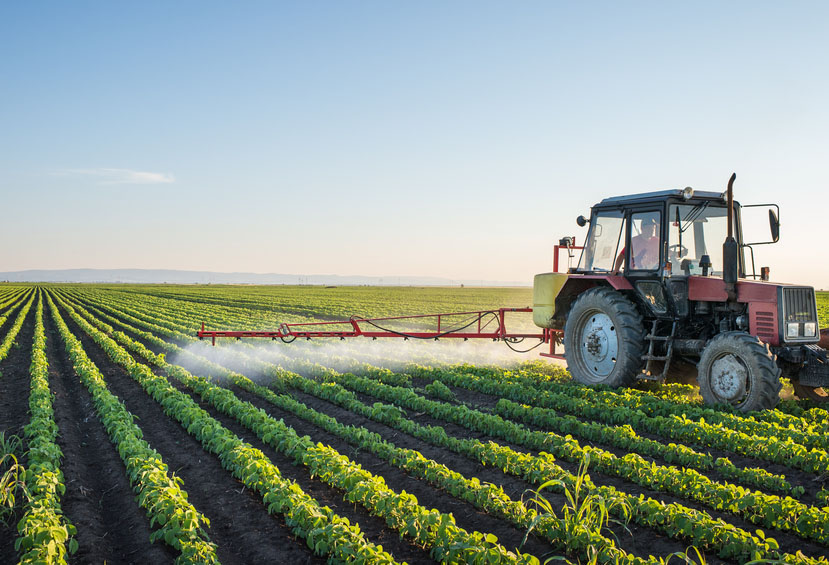The Advantages and Disadvantages of Pesticides

Our populous, fast-paced world demands quality food that is affordable – and lots of it. When it comes to agriculture and the need to meet our world’s growing needs, pesticide use is often a topic of controversy. In the short term, pesticides greatly assist pest control. In the long term, however, pesticides appear to harm the health of humans and the environment. Whether you’re a decision maker in the agricultural industry or a consumer, it is important to weigh the pros and cons of pesticide use.
A pesticide is any substance or mixture of substances whose purpose is to prevent, extinguish, or repel pests or to regulate plants. There are considerable benefits to pesticide use. Cooper & Hans summarize these benefits as primary and secondary. Primary benefits include improved crop and livestock quality and increased crop and livestock yields. Secondary benefits are less immediate, and they include food security, increased export revenues, and reduced international spread of disease. In the short-range, pesticides reduce waste of crops, land, water, time, and other valuable resources. In fact, it has been estimated that investing around $10 billion in pesticides every year saves about $40 billion in crops.
On the other hand, the disadvantages to widespread pesticide use are significant. They include domestic animal contaminations and deaths, loss of natural antagonists to pests, pesticide resistance, Honeybee and pollination decline, losses to adjacent crops, fishery and bird losses, and contamination of groundwater. The fertility of soil is affected by the death or damage to microorganisms caused by pesticides. Further, some pesticides induce immunotoxicity in humans which may lead to immunosuppression, hypersensitivity (allergies), autoimmune diseases, and inflammation; children may be especially susceptible to the adverse effects of being exposed to pesticides. People who work regularly with pesticides, such as farmers, are at greater risk of cancer. Thousands of non-lethal poisonings and cancer cases each year are attributable to pesticides.
There are arguments in support of pesticides and against them. While they improve crop and livestock results, pesticides also damage human and environmental health. To minimize the negative results of pesticides, Arias-Estévez et al. recommend pesticides be very little to not toxic except to the target pest. Developments to pesticide formulation and use, such as microbially derived pesticides and precision band spraying, may also reduce the adverse effects of pesticides. Pesticides are widespread and improve crop quality and yield, thereby saving money to farmers and consumers. Nevertheless, the harmful long-term effects of pesticide use cannot be overlooked.
Sources:
Aktar, Md. Wasim, Dwaipayan Sengupta, and Ashim Chowdhury. “Impact of Pesticides Use in Agriculture: Their Benefits and Hazards.” Interdisciplinary Toxicology 2.1 (2009): 1-12. PMC.
Arias-Estévez, Manuel, et al. “The Mobility and Degradation of Pesticides in Soils and the Pollution of Groundwater Resources.” Agriculture, Ecosystems & Environment 123.4 (2008): 247-260.
Cooper, Jerry and Dobson, Hans. “The Benefits of Pesticides to Mankind and the Environment.” Crop Protection 26 (2007): 1337-1348.
Corsini, E., et al. “Pesticide Induced Immunotoxicity in Humans: A Comprehensive Review of the Existing Evidence.” Toxicology 307 (2013): 123-135.
Gilliom, Robert. “Pesticides in U.S. Streams and Groundwater.” Environmental Science and Technology (2007): 3409-3414.
Pimentel, David. “Environmental and Economic Costs of the Application of Pesticides Primarily in the United States.” Environment, Development and Sustainability 7 (2005): 229-252.
Repetto, Robert, and Sanjay S. Baliga. Pesticides and the Immune System: The Public Health Risks. World Resources Institute, 1996.
“What Is a Pesticide?” US Environmental Protection Agency. 29 Dec. 2015. https://www.epa.gov/minimum-risk-pesticides/what-pesticide
